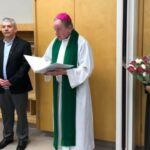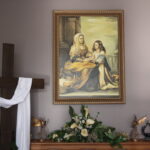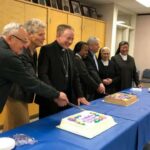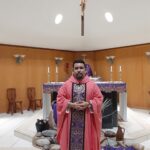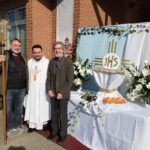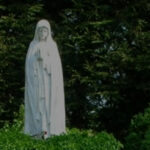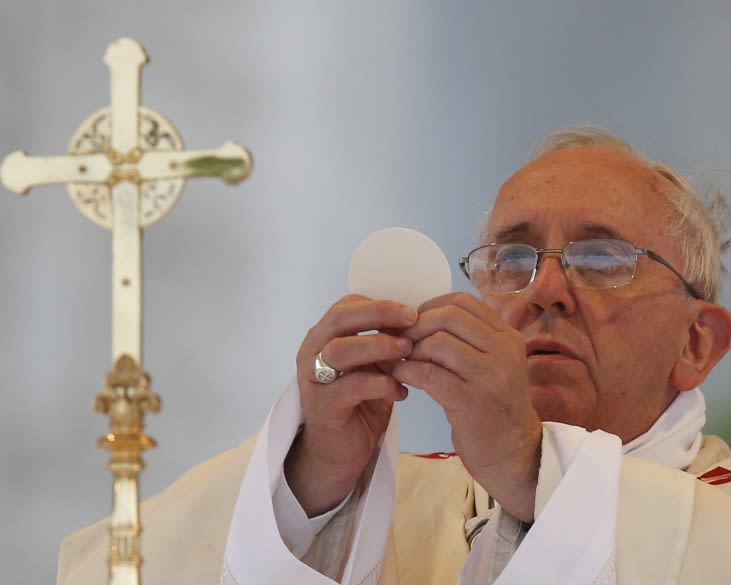
The Church draws her life from the Eucharist. This truth does not simply express a daily experience of faith but recapitulates the heart of the mystery of the Church. In a variety of ways she joyfully experiences the constant fulfillment of the promise: “Lo, I am with you always, to the close of the age” (Mt 28:20), but in the Holy Eucharist, through the changing of bread and wine into the body and blood of the Lord, she rejoices in this presence with unique intensity. (Ecclesia de Eucharistia, 1)
The Second Vatican Council proclaims that the Eucharistic sacrifice is “the source and summit of the Christian life (Lumen Gentium, 11)” “For the most holy Eucharist contains the Church’s entire spiritual wealth: Christ himself, our Passover and living bread. Through his own flesh, now made living and life-giving by the Holy Spirit, he offers life to men.” (Presbyterorum Ordinis 5)
The Holy Eucharist completes Christian initiation. Those who have been raised to the dignity of the royal priesthood by Baptism and configured more deeply to Christ by Confirmation participate with the whole community in the Lord’s own sacrifice by means of the Eucharist. (CCC 1322)
“Grant to us, we beseech Thee, O Lord, that we may worthily frequent these Mysteries for as often as the memorial of this Victim is celebrated, the work of our redemption is wrought.” (Secret, 9th Sunday after Pentecost, 1962 Missale Romanum)
The Sacraments of Reconciliation and First Holy Communion are usually received after the age of seven or eight following two years of instruction at school or through the PREP.
Adults receive First Holy Communion after participation in the RCIA.
If you are sick at home or in hospital and unable to attend Mass, please contact the office to arrange a visit if you wish to receive Communion.



